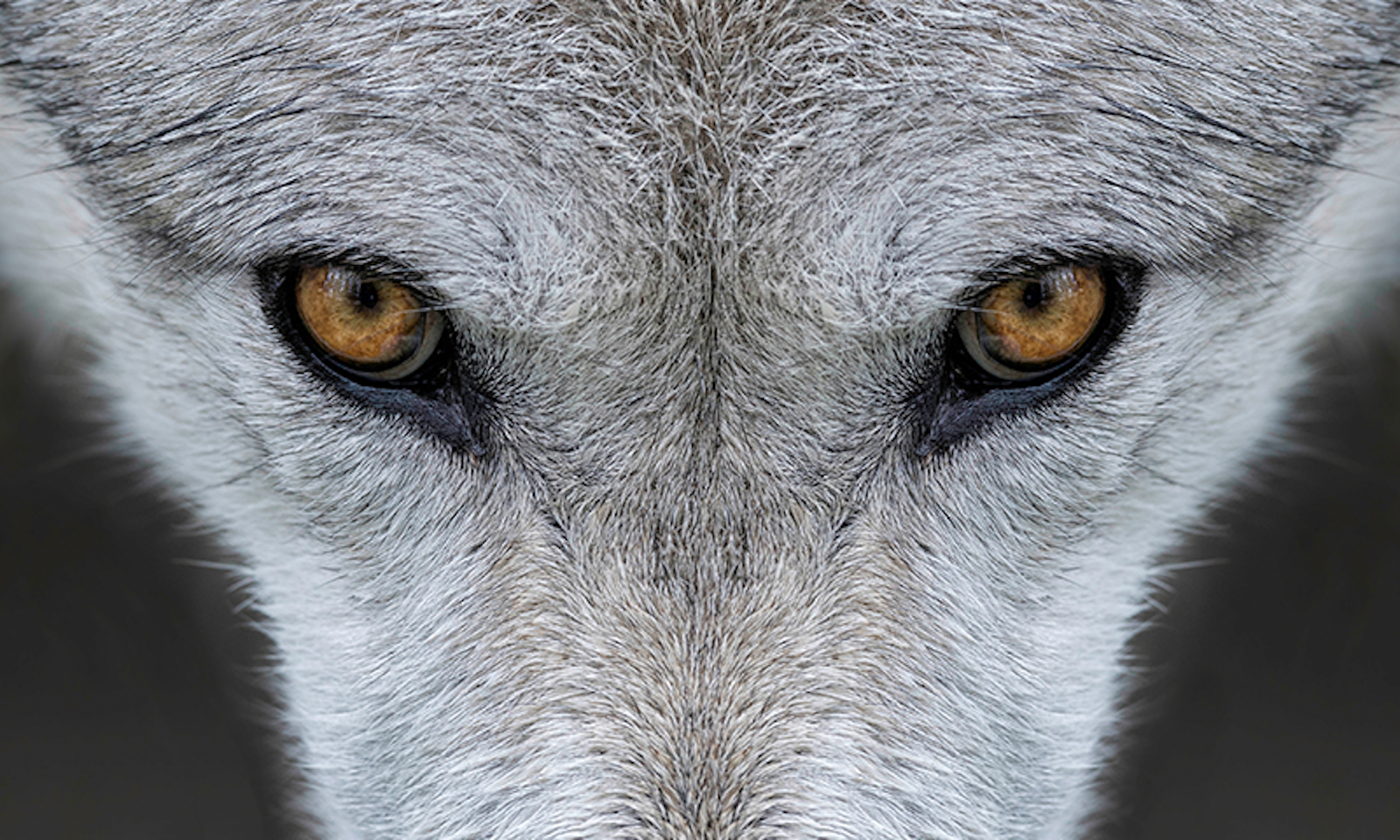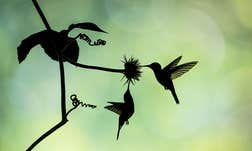Among the forests of Yellowstone National Park, some wolf packs share their territory with cougars. Generally, the two species leave each other alone, although wolves may occasionally run a cougar up a tree and steal its kill—or poke around its feces, which the felines use to mark their territory.
Whether from this scat or the water contaminated with it, some wolves manage to pick up a strange feline parasite. This parasite, Toxoplasma gondii, doesn’t make the wolves ill, but it does change their behavior, making many of them bolder and more inclined to take risks—for better or for worse.
Scientists who have been studying the Yellowstone wolves found that those infected byT. gondii are more likely to disperse from their pack or start a pack of their own. “Dispersal is one of the most dangerous things, because survival actually decreases for dispersing wolves, so not very many wolves actually survive the dispersal process,” says Connor Meyer, a researcher at the University of Montana, and one of the authors of the study, published in Nature.1 But if that wolf succeeds and becomes a pack leader, it will father more pups, achieving a greater reproductive success—a reward that may be worth the risk.
It turns any intermediate host into a bold risk-taker.
T. gondii has long been known to alter the behavior of animals it infects—to serve its own elaborate life cycle and reproductive success. It sexually procreates inside felines’ intestines, shedding out oocytes—tiny but hardy thick-walled egg-like formations—in the cats’ feces. Water or melting snow scatter the oocytes around the soil, grass, streams, and rivers, where they are unwittingly consumed by a range of animals, including rodents that cats prey on. Once inside this intermediate host, the parasite forms cysts in its tissues. But to complete its life cycle this hitchhiker has to make a final, rather improbable journey. T. gondii needs to return to the feline gut. One way to increase its odds is to make the infected rodents too fearless for their own good, forcing them to put themselves at a higher risk of becoming a cat’s breakfast.
Although the cat-and-mouse paradigm is most extensively studied, the parasite works the same with larger animals, for example lions and wildebeest, Meyer says. But the feline’s prey isn’t the only species that may pick up the parasite from the environment—any animal can, to which the wolves study attests. And the parasite seems to be agnostic—it turns any intermediate host into a bold risk-taker.
That includes humans.
In a 2018 study, scientists found that people infected with T. gondii are more likely to pursue business and entrepreneurship as their career choices.2 The team tested 1,495 undergraduate students—studying engineering, business, and arts and sciences at a large American university—for T. gondii using a saliva-based test and found that 22 percent carried the parasite. Those with entrepreneurship aspirations were almost twice as likely to be infected, says one of the study authors, Stefanie K. Johnson, an associate professor of organizational leadership and information analytics at University of Colorado, Boulder.
In a human realm, pursuing business and entrepreneurship takes guts and ability to tolerate risks. Starting a company is essentially equivalent to starting a pack. It requires striking out on one’s own with a greater risk of failure, rather than being in the protective folds of someone else’s company.
The team found that was true on a global level also. When they combed through the databases of T. gondii infection from the past 25 years in different countries and synthesized the data with the Global Entrepreneurship Monitor research project, they found that “infection prevalence was a consistent, positive predictor of entrepreneurial activity and intentions at the national scale.”
This risk-taking behavior may or may not make one a successful businessperson.
It may feel creepy that the tiny cysts lodged in one’s tissues may affect one’s career, or other major life decisions, but other microorganisms affect our moods or actions too. “You see really similar effects for the impact of gut bacteria on human behavior, even things like depression,” Johnson says.3
Global rates of T. gondii infection are about the same Johnson and her colleagues found in their study: 1 in 4 people. “Humans usually get T. gondii from eating undercooked meat or from owning cats,” says Johnson. People can also pick it up outdoors. “If you’re playing outside in the sandbox, you always find cat poop in there, so that could transmit the parasite.” As can gardening. The infection rates, however, vary significantly by countries. Only 9 percent of Norwegians are infected, while Brazil hits 60 percent. Notably, nations with higher infection rates had fewer entrepreneurs who cited a “fear of failure” as a factor deterring them from new business possibilities, the study found.
This risk-taking behavior may or may not make one a successful businessperson. “We don’t know to what extent they’re making better decisions, or are they actually in fact making worse decisions,” Johnson says. So you may hit a jackpot or a suffer a financial ruin. And, of course, that’s similar to what happens to a wolf straying from the pack.
Generally, we tend to think that parasitic infections are detrimental to the host. But in a way, T. gondii acts as an agent of evolution, which may bring financial or reproductive success to its host or cause its demise and death. So is it good or bad for an organism to carry, whether a human or a wolf? There’s no simple answer to this question, Meyer says. “It just shows us that things are a lot more complicated than we ever gave them credit for.” ![]()
Lina Zeldovich grew up in a family of Russian scientists, listening to bedtime stories about volcanoes, black holes, and intrepid explorers. She has written for The New York Times, Scientific American, Reader’s Digest, and Audubon Magazine, among other publications, and won four awards for covering the science of poop. Her book, The Other Dark Matter: The Science and Business of Turning Waste into Wealth, was published in 2021 by Chicago University Press. You can find her at LinaZeldovich.com and @LinaZeldovich.
Lead image: Nagel Photography / Shutterstock
References
1. Meyer, C.J., et al. Parasitic infection increases risk-taking in social, intermediate host carnivore. Communications Biology 5, 1180 (2022).
2. Johnson, S.K., et al. Risky business: Linking Toxoplasma gondii infection and entrepreneurship behaviors across individuals and countries. Proceedings of the Royal Society B 285 (2018).
3. Pennisi, E. Gut microbe linked to depression in large health study. Science (2022).


























